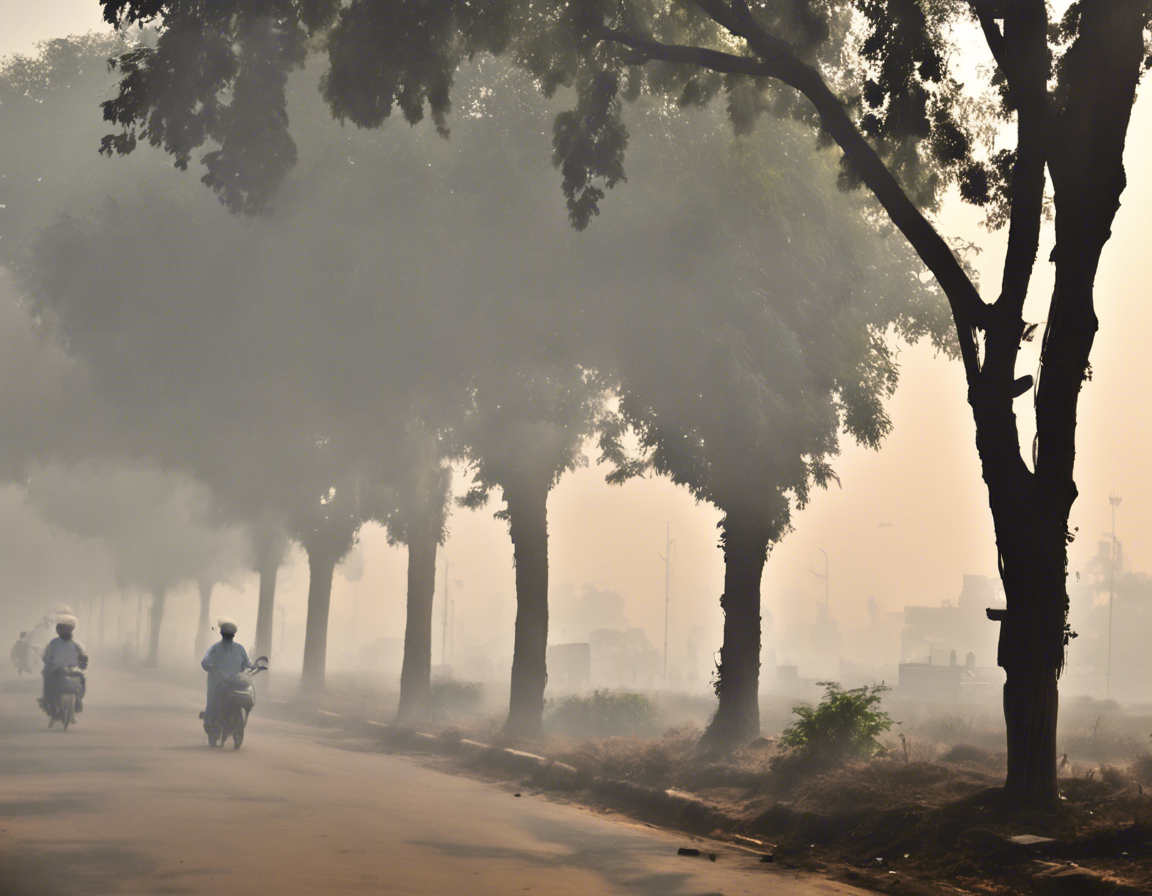AQI Update: Kanpur, Uttar Pradesh Air Quality
Destinations Jun 20, 2024

India is home to some of the most polluted cities in the world, and Kanpur in the state of Uttar Pradesh is no exception. The city’s Air Quality Index (AQI) is a matter of significant concern due to high levels of pollution caused by various sources, including vehicular emissions, industrial activities, construction dust, and agricultural burning.
Understanding Air Quality Index (AQI)
The Air Quality Index (AQI) is a numerical scale used to communicate how polluted the air currently is or how polluted it is forecast to become. It consists of a set of color-coded categories that represent different levels of health concern, ranging from “Good” to “Hazardous.” The AQI is calculated based on the levels of pollutants in the air, including particulate matter (PM2.5 and PM10), nitrogen dioxide (NO2), sulfur dioxide (SO2), carbon monoxide (CO), ozone (O3), and lead (Pb).
Current Scenario in Kanpur
Like many other Indian cities, Kanpur grapples with poor air quality throughout the year. The city’s industrial activities, traffic congestion, and construction projects contribute significantly to the pollution levels. The concentration of PM2.5 and PM10 often exceeds the permissible limits set by the Central Pollution Control Board (CPCB) and the World Health Organization (WHO).
Impacts of Poor Air Quality on Health
Exposure to high levels of air pollution can have serious health impacts, ranging from respiratory and cardiovascular diseases to cancer and premature death. Those at higher risk include children, elderly individuals, pregnant women, and individuals with pre-existing health conditions such as asthma and chronic obstructive pulmonary disease (COPD).
Measures to Improve Air Quality
To tackle the issue of poor air quality in Kanpur, both short-term and long-term measures need to be implemented. These may include:
- Promoting the use of public transportation and cycling
- Regulating industrial emissions
- Imposing strict guidelines on construction activities
- Encouraging the use of clean energy sources
- Implementing dust control measures
- Increasing green cover
Frequently Asked Questions (FAQs) About AQI in Kanpur
- What is AQI, and how is it calculated?
-
The Air Quality Index (AQI) is a numerical scale that ranges from 0 to 500, indicating the level of pollution in the air. It is calculated based on the concentrations of various pollutants such as particulate matter, NO2, CO, SO2, O3, and Pb. The higher the AQI value, the greater the level of air pollution and health concern.
-
What are the health effects of high levels of pollution in Kanpur?
-
High levels of pollution in Kanpur can lead to various health issues, including respiratory problems, cardiovascular diseases, cancer, and even premature death.
-
Who is most at risk from poor air quality in Kanpur?
-
The most vulnerable groups include children, the elderly, pregnant women, and individuals with pre-existing health conditions such as asthma and COPD.
-
What can individuals do to protect themselves from poor air quality in Kanpur?
-
Individuals can protect themselves by staying indoors during peak pollution hours, using air purifiers, wearing masks when outdoor pollution levels are high, and staying informed about the AQI in their area.
-
What role can the government play in improving air quality in Kanpur?
-
The government can play a crucial role by enforcing strict regulations on industrial emissions, promoting clean energy sources, improving public transportation, and implementing sustainable urban planning practices.
-
How often should I check the AQI in Kanpur?
-
It is advisable to check the AQI in Kanpur regularly, especially during the winter months and periods of high pollution. Websites and apps provide real-time updates on air quality.
-
Are there any specific regulations in place to control pollution in Kanpur?
-
The government has implemented various regulations to control pollution in Kanpur, including emission standards for industries, restrictions on vehicle emissions, and guidelines for construction activities.
-
Can planting more trees help improve air quality in Kanpur?
-
Yes, planting more trees can help improve air quality by absorbing pollutants, providing oxygen, and creating a healthier environment. Green spaces also help reduce the urban heat island effect.
-
How can industries in Kanpur reduce their contribution to air pollution?
-
Industries can reduce air pollution by adopting cleaner technologies, optimizing processes to minimize emissions, monitoring pollution levels, and complying with environmental regulations.
-
What are some long-term solutions for improving air quality in Kanpur?
- Long-term solutions include transitioning to renewable energy sources, investing in public transportation infrastructure, promoting sustainable urban development, and raising public awareness about the importance of clean air.
In conclusion, addressing the issue of poor air quality in Kanpur requires a multi-faceted approach involving government intervention, community participation, and individual responsibility. By taking proactive steps to reduce emissions, increase green cover, and promote sustainable practices, we can work towards cleaner and healthier air for the residents of Kanpur and future generations.